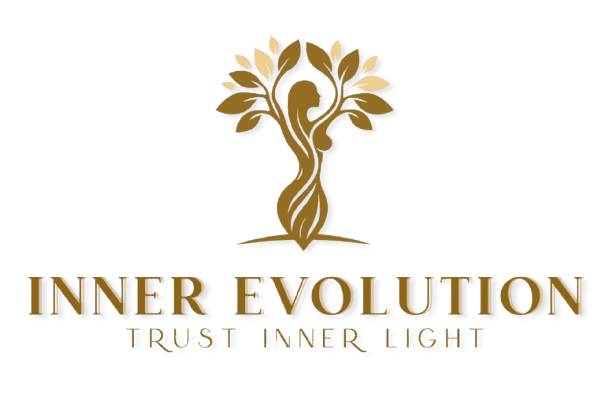:max_bytes(150000):strip_icc():format(webp)/GettyImages-1171809628-cec12b49ed40491d9b79b3a9fa494d8a.jpg)
Many people have thought or said “I hate my mom,” often when they’re adolescents and are mad about not getting their way. They probably didn’t mean it at the time and looking back they may even regret their rebellious behavior.
However, in some cases, people actually do hate their mothers, sometimes for good reason. This can be a difficult situation to be in, because mothers are typically characterized as warm, caring, and nurturing.
If you’ve been mistreated by a person who’s supposed to give you unconditional love and support, it can cause you to question your own self-worth and feel guilty and ashamed.
People sometimes feel hatred for their mothers if they fail to meet their expectations of what a mother should be, says Sabrina Romanoff, PsyD, a clinical psychologist and professor at Yeshiva University, New York City. Below, Romanoff unpacks the complex reasons why you might hate your mom.
Betrayal Trauma—The Impact of Being Betrayed
Why Do I Hate My Mom?
Your mother was once solely responsible for your vitality and responded to your every need. Therefore, we hold intense bonds with our mothers. That intensity often impedes our ability to view our mothers as humans, along with the flaws and damage that correspond with that.
People usually harbor feelings of hatred towards their mothers when they believe they’ve been mistreated, neglected, or abused.
— Sabrina Romanoff, PsyD
Relationships with mothers are often complicated. Rarely are mothers ‘all-bad’ figures, and therein lies the problem.
Moreover, hate is complicated and is usually reserved for people who we have diversified feelings towards. In other words, it is much easier to accept a flawed person when we have a minimal history with them or don’t have to rely on them.
So, if your mother always behaved abusively and treated you horribly, you likely would not hold discord in your view of her. As a result, it might be easier to accept her as she is and sever all contact.
The problem is that mothers, like all humans, are imperfect. Meaning that they have good and bad qualities. Our experience of them depends on both the magnitude of their flaws and also on our ability and capacity to accept their mistakes and faults.
If your mother was abusive, if you struggle to accept her shortcomings, or more commonly, if she was inconsistent in her treatment of you or to others, you likely will have an adverse reaction each time she violates your expectations of her.
Inconsistent parents change their minds often, don’t make strong decisions, lack structure, and don’t engage with their kids in a predictable way.1 If your mother was inconsistent in her parenting, you may have trouble believing that she is reliable or predictable. Research also suggests that this style of parenting can contribute to feelings of anxiety.2
However, underneath your feelings of hate, lies the love the child version of you still has for your mother. Despite mistreatment, children still hold out hope for their caretakers to treat them in the way they believe loving mothers should. And, ultimately, perpetual disappointment usually creates an intense, negative reaction, like hate.
What’s the Psychology Behind Mommy Issues?
How Do I Cope When I Hate My Mother
Hating your mother can be confusing and emotionally draining since hatred is a more severe form of anger. It’s important to prioritize self-care and make any changes to your lifestyle that are necessary for you to cope.
It’s also natural for you to feel angry. Romanoff explains how you can use your anger productively to set boundaries.
Setting Boundaries
Anger is usually a healthy reaction to indicate a boundary has been violated. The key to anger is recognizing it and learning how to use it productively. A productive reaction to anger is to first identify when it is occurring, and then pause to reflect on the source and cause.
If you are able to understand how your boundary has been violated, you can respond effectively by standing up for yourself constructively, using assertive communication, and re-establishing the boundary that has been defined.
This process is not as easy as it sounds, as anger often makes for impulsive action. Although it might feel rewarding to satisfy this urge in the moment, it almost always leads to regrettable consequences, such as name-calling, hurtful comments, threats, or physical aggression. This is because anger seeks retaliation—to hurt the other as you have been hurt yourself.
If you don’t take the time to pause and understand what your anger is in response to, you will be unable to re-create the violated boundary.
Instead, you will be left with the carnage of your impulsive anger-driven response, which usually corresponds with feelings of guilt as you may then feel obligated to apologize to the aggressor.
This creates a vicious cycle of reciprocal jabs between each of you without getting either of your needs met in a productive way.
Instead, use your anger as a guide to help you learn more about yourself, your boundaries, and what you need from others, and in turn, teach the people around you how you need to be treated.
— Sabrina Romanoff, PsyD
Therapy can be a helpful tool to teach you how to use your anger productively and set boundaries that protect your mental health.
Get Help Now
We’ve tried, tested, and written unbiased reviews of the best online therapy programs including Talkspace, BetterHelp, and ReGain. Find out which option is the best for you.
Self-Care
Going through a rough patch with your mother can be emotionally challenging. However, practicing self-care by prioritizing your needs and putting them above the needs of others can help you cope.
This can take different forms depending on the dynamics of your relationship with your mother. For instance, it could mean asking your mother for some space or telling her you don’t want to spend the holidays together anymore.
If you live with your mother, it could involve lifestyle changes, where you move out if you’re old enough to, or seek help if you’re a victim of abuse.
If you are a victim of child abuse or know someone who might be, call or text the Childhelp National Child Abuse Hotline at 1-800-422-4453 to speak with a professional crisis counselor.
For more mental health resources, see our National Helpline Database.
15 october 2019


